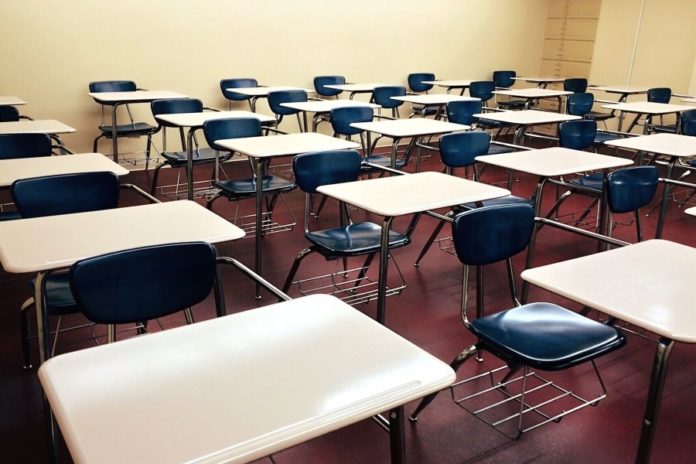By Stefanie Jackson – Northampton schools attempt to manage student behavior using a broken discipline system that simply needs “restoration,” not a complete transformation, according to one school board member.
“We have challenging students, and we need to be responsive because that’s the hand we were dealt,” said school board member Nancy Proto, a retired school psychologist who lives in Cape Charles.
Northampton ranked in the top 10 or 20 of 130 Virginia school divisions for high suspension rates five years in a row, from 2012 to 2017.
Proto is an advocate for reducing Northampton’s suspension rates by implementing restorative discipline in its schools.
Restorative discipline ranks teaching good behaviors above punishing bad behaviors as a more effective means of changing behavior.
At the Northampton school board meeting June 13, Proto challenged existing ideas on student discipline by showing two video clips of disruptive students (not from Northampton County) and asking school board members how those students should be disciplined.
One clip showed a student sitting in a school bus, arguing with the driver and shouting obscenities at her.
For this nonviolent but defiant behavior, school board chairman William Oakley said the student would “get off the bus for the rest of year. I don’t care how long it was. When I was an administrator, he’d be gone.”
“That’s an adult he’s speaking to,” he added. “I would talk to him, explain to him what he did, why it was wrong, and why it’s not acceptable.”
School board member Maxine Rasmussen agreed. As a parent, she would not allow the teen to ride the bus. He would have to ride his bicycle to school.
“If he were my child, he’d have his mouth washed out with soap,” school board member Jo Ann Molera said.
School board members saw only a one-minute clip of the video that was taken by another student and posted on YouTube.
According to the YouTube user, the student didn’t yell or curse until after the bus stopped. The driver stopped to call 911 when the student defied her order to move after he sat down and hugged a female friend who had a bad day.
During the uncut video, the student asks the bus driver why he is not allowed to sit next to another student. She doesn’t answer.
Sometime after the incident, the bus driver was replaced, the YouTube user stated.
Proto made it clear that the offending student’s reaction was not acceptable.
But punishments are not effective, she said. Out-of-school suspension is the most severe and least effective form of punishment because “we pretend school is like Six Flags.”
For many students, staying at home is more like “Six Flags” because they get to sleep in, watch TV, and play video games, she said.
In-school suspension is better but still ineffective. Students remain in school, but they still get a vacation from sitting in the classroom and learning new material, and they eat lunch with their peers and socialize.
Detention is treated as the “weakest” form of school discipline even though it can be the most effective, Proto said.
She recommended more frequent use of after-school detention and a structured school day, meaning the offending student attends class but loses social privileges for the day and doesn’t eat breakfast or lunch with peers.
The restorative aspect would be a “character project” completed during detention. For example, if a student was in a physical fight, his project might be researching the law and the real-life consequences of assault.
Restorative discipline would be an additional tool for shaping student behavior, not a replacement for in-school and out-of-school suspensions, she said.
The school board is expected to discuss Proto’s findings early on in its next meeting June 27.



